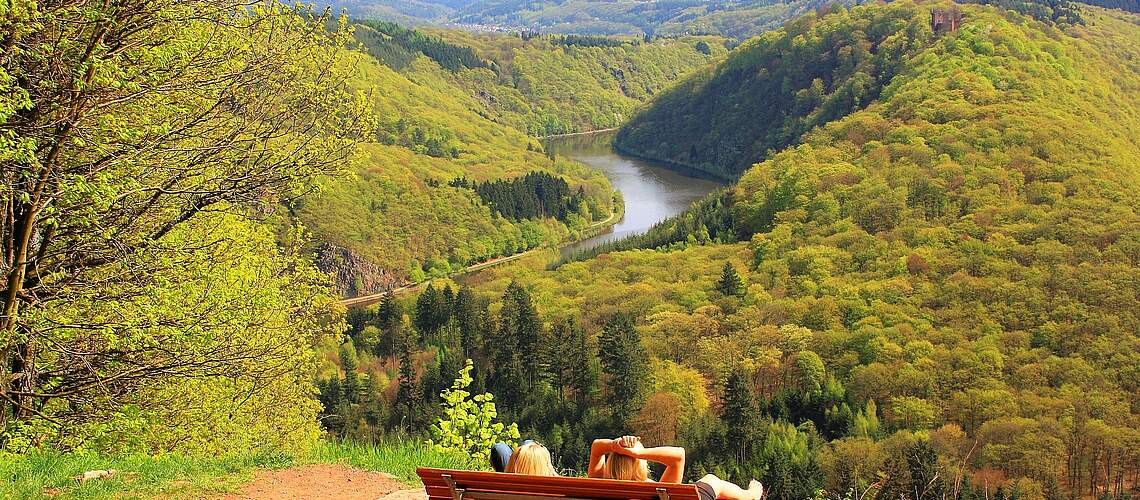
Saarland dialect for beginners
In Germany there is a multitude of dialects - about 16 to 20 in number. Depending on the region and the dialect, it is not so easy to understand the spoken language of people with other dialects. Today we would like to introduce the Saarland dialect.
One thing in advance: There is no uniform Saarland dialect, because in the Saarland Rhine-Frankish and Mosel-Frankish dialects overlap. In addition, some terms are adapted from French.
Thus, several dialects are spoken in Saarland, which vary depending on the region and often tend to merge.
Nevertheless, the Saarland dialect has a charm of its own and, in our opinion, is one of the weirdest and most unique dialects in Germany.
The most important Saarland terms
In order to give you a better understanding of this unique dialect, we have compiled a list of the most important Saarland terms.
1. Unn – A word that has several meanings in the Saarland.
Some examples for better comprehension:
„Unn? – jo, unn selbschd/selwer?“
– „Hello, how are you? How is work going? / How is your family? etc.“ – „I’m good, thanks for asking. How are you?“
2. Graad se lääds – Now more than ever.
„Graad se lääds mach isch das jetzt nidd!“
– „Now more than ever, I won’t do it!“
3. ebbes – something
„Isch han ebbes vergess.“
– „I forgot something.“
4. schwätze – talk, say
„Außerhalb vum Saarland treft ma se selde enna, der so schwätze dud.“
– „Out of the Saarland area, you rarely meet people who talk this way.“
„Schwätz kein dumm Zeisch!“
– „Don’t talk nonsense!“
5. Dabber! – Hurry!
„Mach dabber!“
– „Hurry up!“
6. Knause – Head
„Das es e rischdischer Knausekopp!“
– „He is really stubborn!“
7. Flemm – depressive condition, derivation from the French „avoir la flême“ (laze).
„Ich hann die Flemm, ich gehn jetzt hemm.“
– „I’m not well, I will go home now.“
8. Kloor – funny/interesting, most likely derivated from „cleary“
„De Charly hat e kloori Freindin.“
– „Charly has got an interesting/funny girlfriend.“
9. Urwes – leftovers
„De Teller gebbd leer gess! Do werre kenn Urwese gemacht.“
– „Eat up! We don’t leave any food on the plate.“
10. flubbe – to smoke
„Mir gehen mo eeni raus flubbe.“
– „We are going outside to smoke (a cigarette).“
These are just a few examples of the diversity of the Saarland dialect.
Differences to Standard German
Now we will look at two words that are largely non-existent in Saarland, but are in Standard German.
"Get" instead of "take" in Saarland
The word "get" has replaced "take" in Saarland in all areas, so "take" has almost disappeared as a dialectical verb in Saarland.
Here are two examples:
“I picked up 10 kg!" - "I lost 10 kg!"
"I'll get the bus." - "I'm taking the bus."
Why Saarlanders "genn" everything and not "become"
"Giving" takes on all the functions of "becoming" in Saarland, but there is no particular reason for this.
So in Saarland, people don't go crazy, they "genn crazy."
The Saarland creed
Finally, the Saarland creed:
"Hauptsach gudd gess!"
The Saarland maxim of life means: "The main importance is to eat well!"
Because, as we all know, the way to somebodies heart is through the stomach. 😊
Would you like to learn more about the German language and what it is like to live here? Why don’t you attend one of our German courses?
